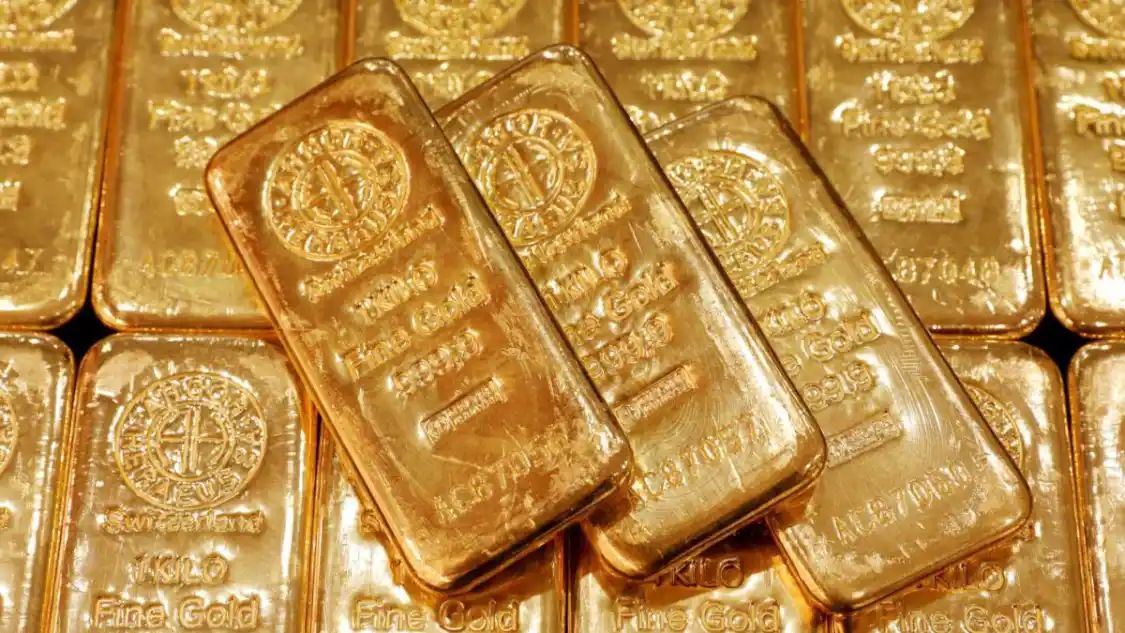Is gold signalling a Trump victory?
At the time, the vectors pointed to the Chinese central bank buying gold to try and bolster its currency which it was trying to internationalise.
After a bit of a rest, last week, gold hit another all-time high, bursting through $2,100 an ounce, and as the accompanying graphic shows, breaking through a very long-term resistance. If this break sustains, it could be blue skies-meaning we could be entering an entirely different era. Gold has historically been seen as an inflation hedge, but it is already nearly double the value it was at its low in 2014, and clearly a 100% return in 10 years is much different than an inflation hedge.
Interestingly, bitcoin has also surged to yet another all-time high ($68,900) last week, smashing the previous all-time high set in October 2021. I’ve generally been uncertain, although not dismissive, of bitcoin (bit.ly/3v6kS17), believing that the market is just too volatile for me, at least, to make sense of. And, sure enough, right after I wrote the article, bitcoin rose to the previous all-time high I mentioned, and then crashed by 75%, to $16,195, in the year following. Still something to stay away from.
However, it is important to note that while the total market value of bitcoin, which is down to $2.5 trillion today from $3 trillion in 2021, US 10-year yields were just 1.5% in 2021 versus over 4% today. This suggests that the current rally may have stronger legs than the last time around.
All of this, plus the correlation between the surge in bitcoin and the sharp rise in gold-in 2021, gold was quiescent-is once again making me question whether something “fundamentally different” is driving markets this time.
To my mind, the only thing that could make things fundamentally different-and is staring us in the face-is if Donald Trump wins the US election in November this year. Shockingly, poll after poll shows him defeating incumbent Joe Biden, particularly in the supposed swing states, although it is possible that Biden’s State of the Union address could shift momentum.
But nobody has any doubt that if Trump does win, he will be vindictive, temperamental, and will work off no plan whatever-in other words, UNCERTAINTY will be the guiding light.
And, as we all know, markets hate uncertainty.
Now, as yet, the classic markets-equities and bonds-are not showing any terror. While everybody seems to feel that the Dow (and, incidentally, the Sensex) are extremely, and, perhaps, unsustainably high, nobody is selling furiously. Bond market volatility is also quite low, which is surprising given the continuing uncertainty over when and whether the Fed will start cutting rates. And yet the two unusual “assets” -gold and bitcoin-are loudly playing a terrifying tune.
The denouement if/when Trump wins could go something like this: With near zero clarity of what he will do on any day, investors will prefer to hold cash or equivalents. Investment will slow down and bond yields will fall, and as the 10-year and 2-year gap started to turn positive, the long-awaited/feared recession will strike in the US-it already has in the UK and Germany. The dollar will fall as US rates come down, giving gold (and bitcoin) a further shine.
Trump could withhold arms sales to Ukraine-he admires Vladimir Putin, he says-but to keep the big military contractors like Boeing, Raytheon, General Dynamics, and Lockheed in business, arms sales to Israel will certainly increase-Trump is friendly with Benjamin Netanyahu. This simple and not particularly unlikely situation could dramatically worsen the situation in Europe and threaten an entire new dimension of hostilities in the Middle East.
None of this is happening today, and the US election is eight months away, which may be why the classic markets are playing pretend cool, while the crazies (crypto, gold) are going nuts. Watch gold and crypto and if they continue to climb, or even stay high, we may be looking at a major RISK-ON mood coming to the markets, which could collapse equities and push emerging market currencies sharply lower (even if the dollar sinks as well).






